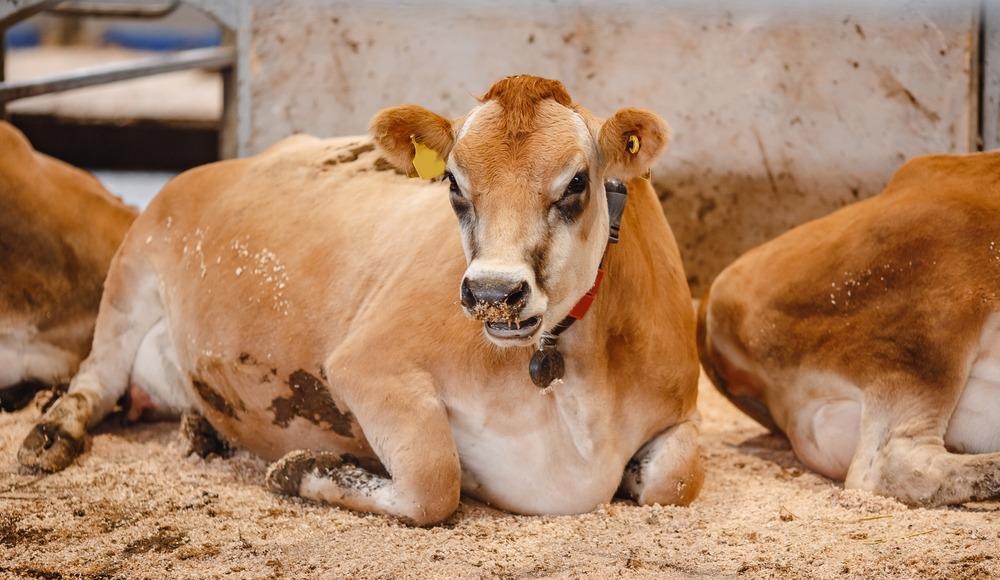Biochemistry is an important field as it applies to the field of veterinary science. Blood hematological and biochemical parameters are necessary to diagnose disease unmanaged the health of both wild and captive animals. The use of hematological parameters is essential in assessing the condition of animals, and serum biochemistry is used as a tool for the clinical assessment of livestock and wild animals.
Both hematological and biochemical parameters vary according to the species that they are assessed. The use of animal blood as an indicator for disease pathology is critical in the management of wildlife. This is because herbivores are considered to play an important role in the ecosystem and bring economic benefits to humans.

Image Credit: FOTOGRIN/Shutterstock.com
Clinical Biochemistry in Wildlife Treatment
Clinical biochemistry is defined as the analysis of the blood plasma (or serum) for several bodily fluids including substrates, enzymes, and hormones alongside that used in the monitoring and diagnosis of wildlife disease. Tests also include the analysis fluids from wildlife including urine, cerebrospinal fluid, and ascitic fluids. Specific tests to be able to diagnose one clinical condition come at that for several factors affecting the most commonly requested analytes are used.
In line with this principle, a well-chosen group of tests can be conducted to provide information about a variety of conditions parent in the treatment of wildlife, biochemistry tests are also used alongside full hematology, as the evaluation of both of these outcomes are essential for the recognition of characteristic disease patterns.
The Basic Test Panel in the Treatment of Wildlife
several veterinary laboratories enable a basic panel of tests to be conducted. Each of these panels represents a minimal investigation required for most situations. When analyzing small animals come up with a typical panel when including measures of total protein, globulin, albumin, creatinine, urea, and alkaline phosphatase.
In addition, bilirubin may be measured. This panel may be altered for the analysis of other animals. For example, glutamate dehydrogenase (GDH) and/or gamma-glutamyl transferase (GGT) is considered to be a more diagnostically useful liver enzyme test for farm animals. Alternatively, muscle enzymes (CK and AST) are considered to be more appropriate when analyzing athletic animals.
Animal Clinical Biochemistry
Animal biochemistry studies different chemical reactions in the body of animals. This is highly relevant to understanding several aspects of veterinary science and animal husbandry. This includes an enhanced understanding of metabolism and the function of the process is in health and disease in animals. Biochemistry is relevant to metabolism and function and forms the basis of understanding how the chemical architecture of biological molecules is relevant to their function.
In the case of animal husbandry, an understanding and analysis of chemical parameters are essential. The tools of biochemistry are harnessed for the cultivation and growth of domestic animals. A range of biochemical tools is used by veterinarians to diagnose diseases in animals. For example, recent technologies such as dynamic tensiometry (DT) are used in the case of cattle farming.
DT of blood serum and PCR analysis of particular markers are used for general screening and complete diagnosis of animal health periods in the case of cattle farming, hematological indicators such as total protein and their fractions, enzymes, low molecular metabolites such as glucose, lipids, and bilirubin, and cations and anions.
In particular, studies of cell-free nucleic acids circulating in the blood are used to study and analyze, for example, pregnancy, infectious and chronic diseases, and cancer. This cell-free DNA can be detected using standard molecular biological techniques, like DNA amplification and next-generation sequencing. Moreover, modern techniques such as digital PCR allow an enhanced quantification of copy number variations which are particularly important in the diagnosis of chromosome all aberrations in them prenatally.

Image Credit: Parilov/Shutterstock.com
The Use of Biochemistry in Animal Reproduction
Fertility is considered to be an attractive property in livestock animals. Several factors can affect fertility, which include genetic factors, health status, and environmental effects, which include management practices.
Biochemistry has been utilized to manipulate fertility in, for example, cattle by targeting several of the key steps in fertility. These include the production of the gametes, ovulation, fertilization, implantation, and gestation. The manipulation of fertility using biochemical methods has enabled the Food and Agriculture industry to produce meat and milk efficiently in a way that meets the demands of an increasing human population.
Biochemistry for Enhanced Livestock
Increasingly, the use of genome or gene-editing technology is also being considered. Using this approach, a bovine genomic locus for example can be modified specifically in somatic cells to knock out or knock particular genes via a mechanism called homologous recombination. This gene-targeting strategy has been used predominantly in mouse embryonic stem cells as proof of concept.
With the subsequent development of designer nucleases such as zinc-finger nucleases and transcription activator-like effector nucleases (TALENs), clustered regularly interspaced short palindromic repeats – CRISPR associated protein 9 (CRISPR/Cas9), more efficient and facile genomic engineering in animals has been possible. This produces transgenic animals, which can produce milk with beneficial medical compounds, meat with a better nutritional profile, or increase disease resistance.
References:
- Zaitsev SY, Bogolyubova NV, Zhang X, et al. (2020) Biochemical parameters, dynamic tensiometry and circulating nucleic acids for cattle blood analysis: a review. PeerJ. doi: 10.7717/peerj.8997.
- Crowe MA, Hostens M, Opsomer G. (2018) Reproductive management in dairy cows - the future. Ir Vet J. doi:10.1186/s13620-017-0112-y.
- Daly J, Smith H, McGrice HA, et al. (2020) Towards Improving the Outcomes of Assisted Reproductive Technologies of Cattle and Sheep, with Particular Focus on Recipient Management. Animals (Basel). doi:10.3390/ani10020293.
- Kaneko J. (2000) A century of animal clinical biochemistry : growth, maturity and visions for the future. Revue de Médecine Vétérinaire.
Further Reading
Last Updated: Jan 24, 2022